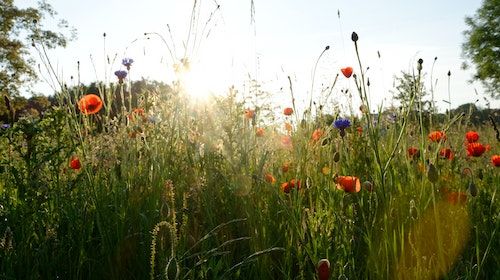
25 June 2021
Groundswell, the Regenerative Agriculture Show and Conference, took place on Wednesday and Thursday, bringing together farmers and anyone interested in food production and the environment to learn about the theory and practical applications of conservation agriculture or regenerative systems, to improve soil health. On Thursday morning, Rt Hon George Eustice MP was interviewed by Rosie Boycott. He highlighted the importance of soil health, which will likely be the focus of the Sustainable Farming Incentive in England as it replaces the EU’s Common Agricultural Policy (CAP).
The Environment Bill started its Committee Stage in the House of Lords this week. Key amendments are being debated on significant issues including soil health, pesticides and supply chains. The Sustainable Soils Alliance and the Soil Association are urging Peers to support the tabled amendment to include the word soil in the definition of 'natural environment'.
Sir James Bevan, the chief executive of England’s Environment Agency has called for the government to reinstate a £120m grant to help increase surveillance of water companies and the farming industry, the two main polluters of rivers.
Defra has published its ‘Farming in Protected Landscapes programme’. The programme will offer to fund farmers and land managers in Areas of Outstanding Natural Beauty (AONB), National Parks and the Broads (it is not an agri-environment scheme) to support nature recovery, cultural heritage sites and sustainable farm businesses.
On Monday, a report by the European Court of Auditors stated that the EU CAP has failed to support climate-friendly farming. EU negotiators will be attempting to agree on new rules for the CAP in the next few weeks. The farming subsidy scheme will cost 387 billion euros, a third of the EU budget for 2021-2027.
At Groundswell, the Farm Carbon Tool kit announced the soil farmer of the year 2021. Tom Sewell, an arable farmer from Kent and Sam Vincent, a dairy farmer from Dorset were this year’s joint winners. The competition aims to find farmers and growers who are engaged with, and passionate about managing their soils in a way that supports agriculture, reduces greenhouse gas emissions and builds soil health.
Waitrose has announced that it will be banning the sale of peat containing compost from 2022, pledging to only stock peat-free alternatives from January of next year. In doing so they hope to encourage gardeners to embrace more sustainable gardening practices.
A recent article in Farmers Weekly looks into the top six companies offering carbon-based payments to arable farmers, including Soil Capital and Gentle Farming. The Sustainable Soils Alliance and the Soil Association will be hosting a stakeholder event on 14th June for all those involved or interested in a UK Soil Carbon Market.
A new volume of research ‘Advances in Measuring Soil Health’ edited by Professor Wilfred Otten from Cranfield University was published this week. The volume offers a comprehensive overview of key advances in measuring soil biological, physical and chemical properties and concludes by looking at how measurement can be translated into farming practice.
Footprints of the last dinosaurs to walk on UK soil 110 million years ago were discovered in Kent, in strata known as the Folkestone Formation. This discovery indicates that whilst it was believed that this part of Kent and much of the UK was beneath a shallow sea during the late Cretaceous period, the Folkestone Formation was in fact inter-tidal.